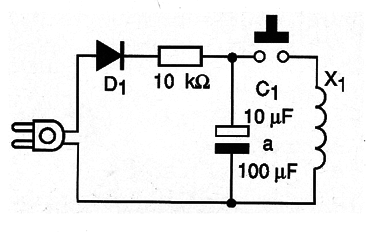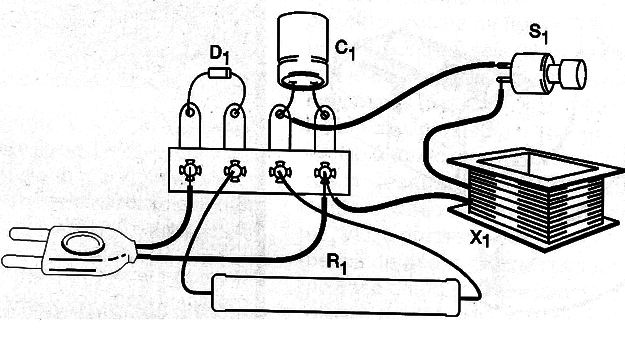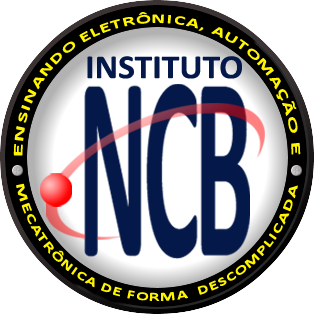Small metal pieces, tools, scisors and other metalic objects can be magnetized using this project. You only have to put the object inside a coil and press a key to let it magnetized in few seconds.
The secret is a high current short pulse applied to a coil producing a strong magnetic field. The filed is strong enough to alter the orientation of the elementary particles in the metal creating a magnetic field. The metal will be able to atract small metal pieces as screws, paper clips, etc.
The objects used in this experiment should be made of materials as steel or other that retain some amount of magnetic field as metals as copper, aluminium and other don't have this property. Some tools as screw drivers, scisors and blades are examples of objects that can be magnetized with this circuit.
The circuit consists in a common DC power supply used to charge a electrolytic high-value capacitor. When the capacitor discharge accross the coil a high current pulse is produced generating a correspondent strong magnetic field.
Using the magnetizer is very easy: place the metalic object inside the coil and turn on the power supply via S1.
Wait some seconds to the complete charge of the capacitor and press S to position.
A current pulse will be produced accross the coil. Repeat this operation some times in regular intervals. The object inside the coil will remain magnetized after the operations.
Try to lift a paper clip with the object (a screwdriver, for instance).
Figure 1 shows the schematic diagram of the magnetizer.

The principal components are soldered on a terminal strip, used as chassis, as shown in figure 2.

LX is formed by 50 to 100 turns of 28 AWG wire on a 2 x 2 x 1 inches cardboard form. You can also use the secondary coil of a 6 to 12 V small transformer as magnetizer coil. You only have to remove the transformer metal core.
Positions of the polarized components as the rectifier diode and electrolytic capacitors should be observed.
Caution! - This project is plugged to the AC power line. Dangerous voltages are present in some parts of the circuit. Be sure to get inaccessible these parts to avoid shock hazards.
D1 - 1N4004 or equivalent - silicon rectifier diode
R1 – 10 k Ω, 5-watt, 5% - resistor
C1 – 10 to 100 µF/ 150 WVDC - electrolytic capacitor
Lx - Magntizer coil - see tex
S – Push-button NA



